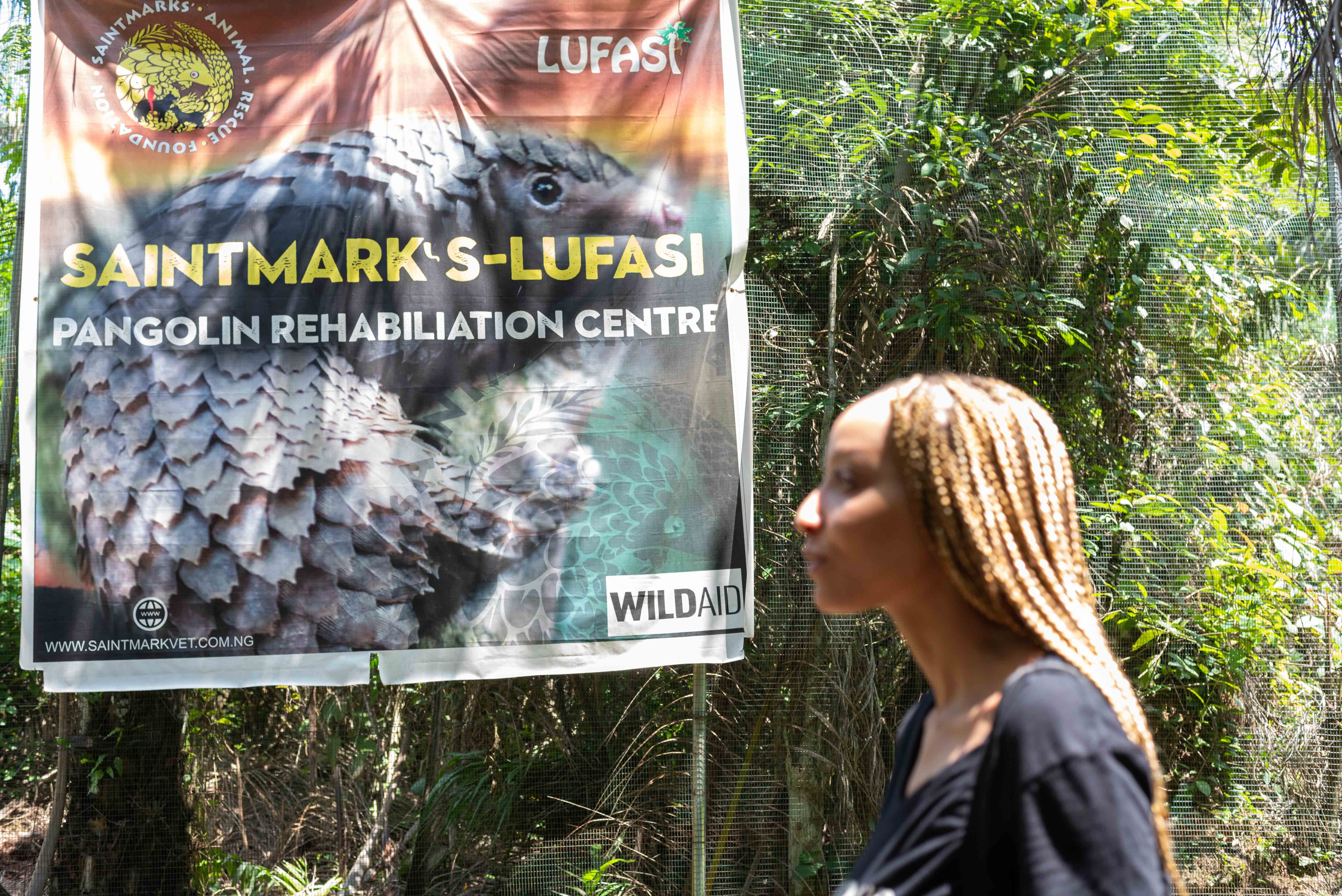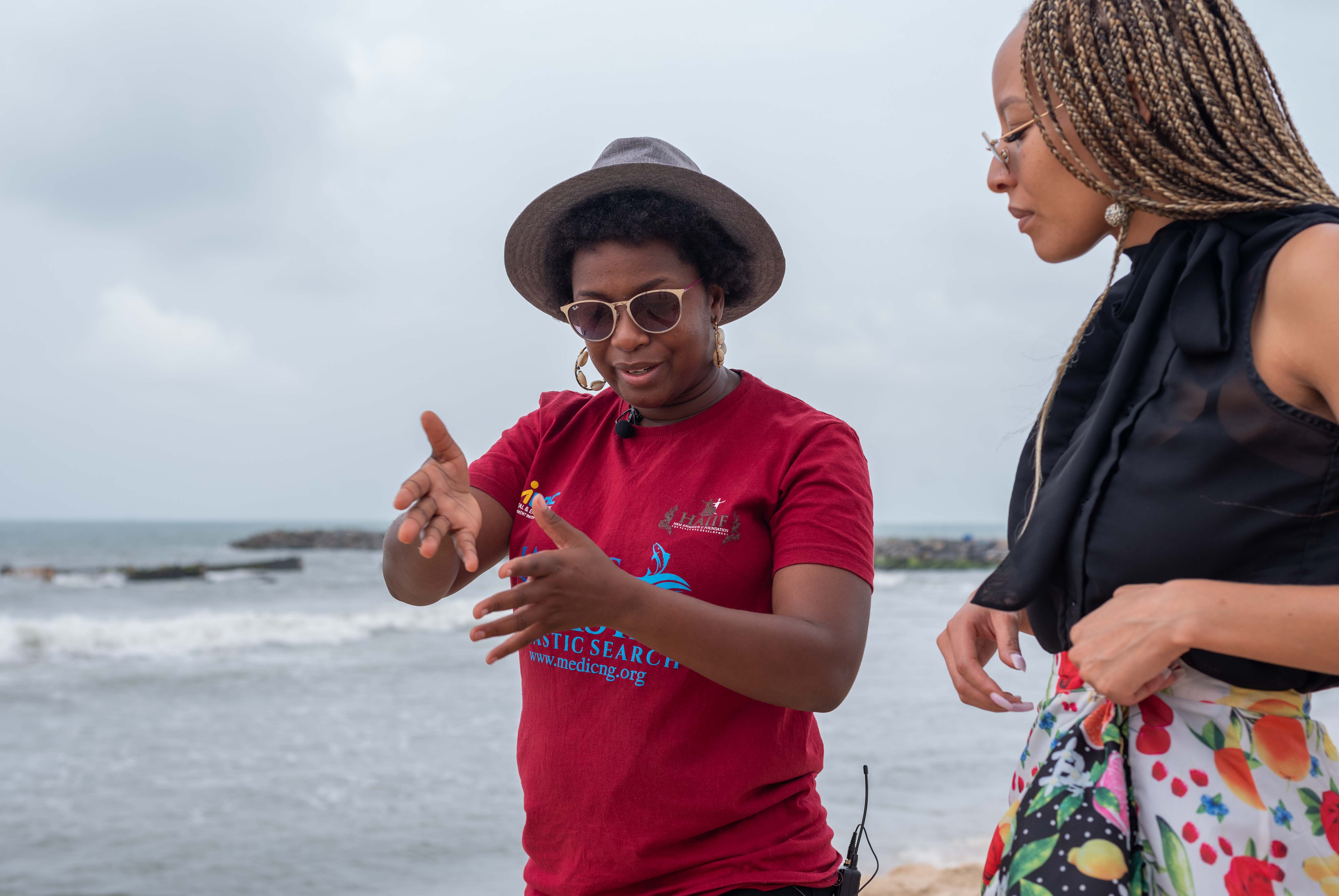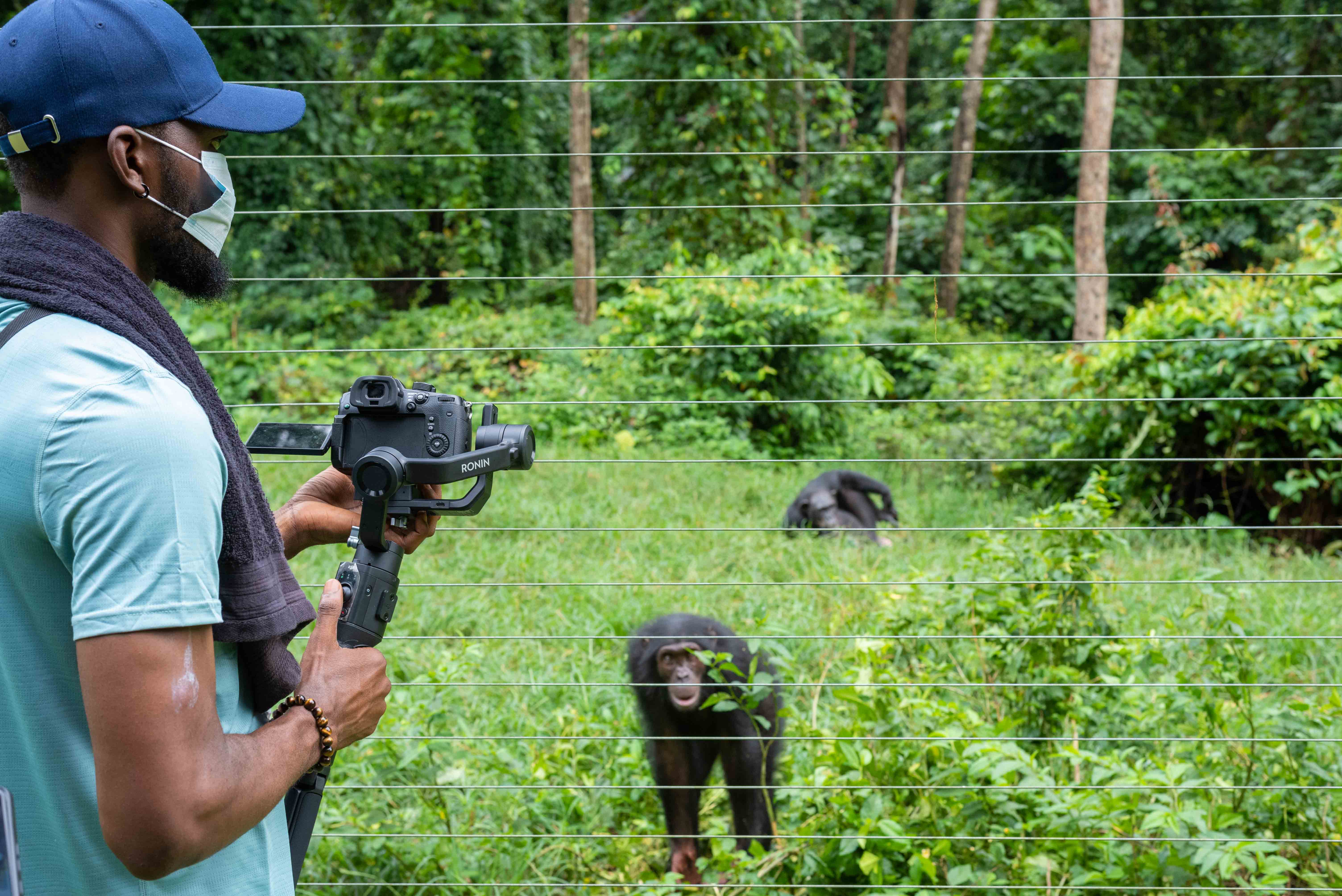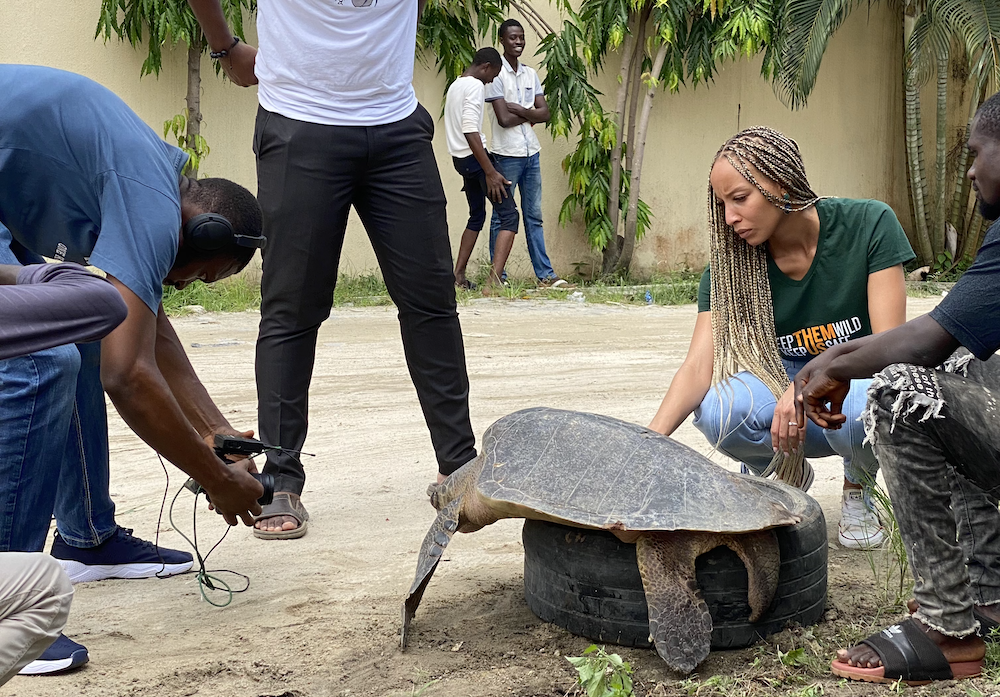It is mid-February in LUFASI Nature Park on the outskirts of Lagos, Nigeria commercial hub and a small group of conservationists are fitting a pangolin rescued from the bushmeat market with a radio monitoring tag.
It is part of ongoing local efforts to gather data to understand pangolins and use that to lead conservation efforts to protect the world’s most trafficked mammal.
But not everybody here is a scientist or biologist.
Laila Johnson-Salami, an award-winning Environmental Correspondent with ARISE News, an international TV news channel focused on Africa, is also here with her filming gear.
The radio-tagging of the rescued pangolin would go on to be the first episode of Season 2 of Go Wild, a wildlife TV series airing on ARISE News.

In October 2021, WildAid’s TV partner, ARISE News started Go Wild to bring environmental conservation stories to millions of viewers in Nigeria and across Africa.
Go Wild airs on Sundays on channels 416 and 44 on MultiChoice Group’s DStv and GOtv channels, both digital satellite channels with millions of subscribers throughout Africa. In the U.K., the series broadcasts on 519 on Sky UK and Freeview channel 136. It is also available on ARISE and WildAid’s YouTube channels and other social media channels.
Laila appears on TV after each episode is broadcast to break down the subject under consideration and occasionally invites experts to explain the stakes.
In Season 1, Laila presented 12 episodes covering different topics such as the commercialized bushmeat, the use of Nigeria as a hub for wildlife trafficking, zoonotic disease and illegal wildlife trade, and loopholes in Nigeria’s wildlife laws. Season 1 featured local conservationists working hard to protect wildlife and their habitat throughout Nigeria.

“I feel like a biologist now!” Laila said.
“Season 1 was a huge learning lesson for myself and the team. We learnt so much about conservation and the real state of Nigeria’s ecosystems. This has encouraged us to keep reporting - the importance of this shouldn’t be underestimated.”
Nigeria’s wildlife is facing an enormous crisis. Giraffes, rhinos and cheetahs are already extinct in the West African country.
In the past six decades, the populations of key species have significantly declined amid a rise in population, human settlements, deforestation, infrastructure and expanding agriculture. Poaching to supply the bushmeat trade in urban centers combined with illegal logging threatens wildlife populations across the country.
Today, the number of West African lions in the wild in Nigeria is estimated to be under 50. It is a similar sad story for the unique Cross River gorilla, only found in Nigeria and Cameroon: fewer than 300 remain in the wild, about 100 of these are in Nigeria.
Like gorillas and lions, elephants have also declined, numbering fewer than 500. Pangolins, wild dogs, leopards, chimpanzees, manatees, sea turtles, vultures and several monkey species are hanging by a thread.
Plant species, too, are not spared. Take the African rosewood, known as Kosso, for instance. This large tree species used to be found across West Africa but is now on the brink of extinction due to heavy exploitation for its timber.
In Nigeria, Kosso is believed to have declined by about 80 percent between 2009 and 2015, as exports to meet demands for furniture in Asia skyrocketed.
According to the Environmental Investigation Agency, a nonprofit that has investigated the illegal rosewood trade, over three million tonnes of rosewood valued at $2 billion had been illegally traded between West Africa and China over the past five years.
The Convention on International Trade in Endangered Species of Wild Fauna and Flora (CITES), which protects wildlife and plants threatened by trade, is watching closely. In early June CITES suspended international trade in rosewood from West Africa; therefore, importing countries like China can no longer accept illegal rosewood shipments This extends to all 184 countries who are members of CITES. Nigeria has been dealing with a trade suspension since October 2018.

As the pressures on Nigeria’s wildlife and forests linger, the Go Wild series continues to raise awareness about these challenges and call for strict enforcement.
In February, ARISE began to broadcast Season 2 of Go Wild almost immediately after the first season.
Go Wild season 2 focuses on pangolins, vultures, African grey parrots, illegal rosewood trade, carbon financing, CITES recent suspension of international trade in West African rosewood, and on the ongoing outbreak of monkeypox that has been detected in 42 countries. Laila also took the viewers inside some of Nigeria’s last protected areas, including Ngel Nyaki forest reserve, home to Nigeria’s largest range of plant biodiversity, and the Emerald forest on the banks of the Osun River in southwestern Nigeria, which is being threatened by contamination from illegal gold mining.
For Laila, the clock is ticking for wildlife populations in Nigeria and the TV series is one way to fight back.
“There is still so much to uncover and so many stories to tell. A huge objective for me is to amplify Black voices in conservation and to show that Nigerians care. It is often assumed that citizens don’t, but I’ve learnt that citizens just need to be aware,” the environmental correspondent told WildAid.

As the Season 2 veers towards its end in the coming months, the objective for Laila and the production team remains the same: reach millions of African audiences, particularly Nigerians, with information about the current status of wildlife, the threats they face and why we need to protect them while also highlighting local efforts to protect what is left.
Go Wild strives to create robust awareness and strong political will to protect wildlife and forests before it is too late.
It is important that future generations of Nigeria get to behold lions, elephants, gorillas and other wildlife in the wild rather than solely on their TVs and storybooks.
“Wildlife crime continues to place a deep dent in Nigeria’s economy,” Laila said.
“The loss of wildlife also continues to have far more effects on our environment than we realize. If we don’t find a way to end this now, what is Nigeria going to look like in 10 years time? It’s important that we challenge criminal syndicates and encourage our leaders to enforce our laws.”


